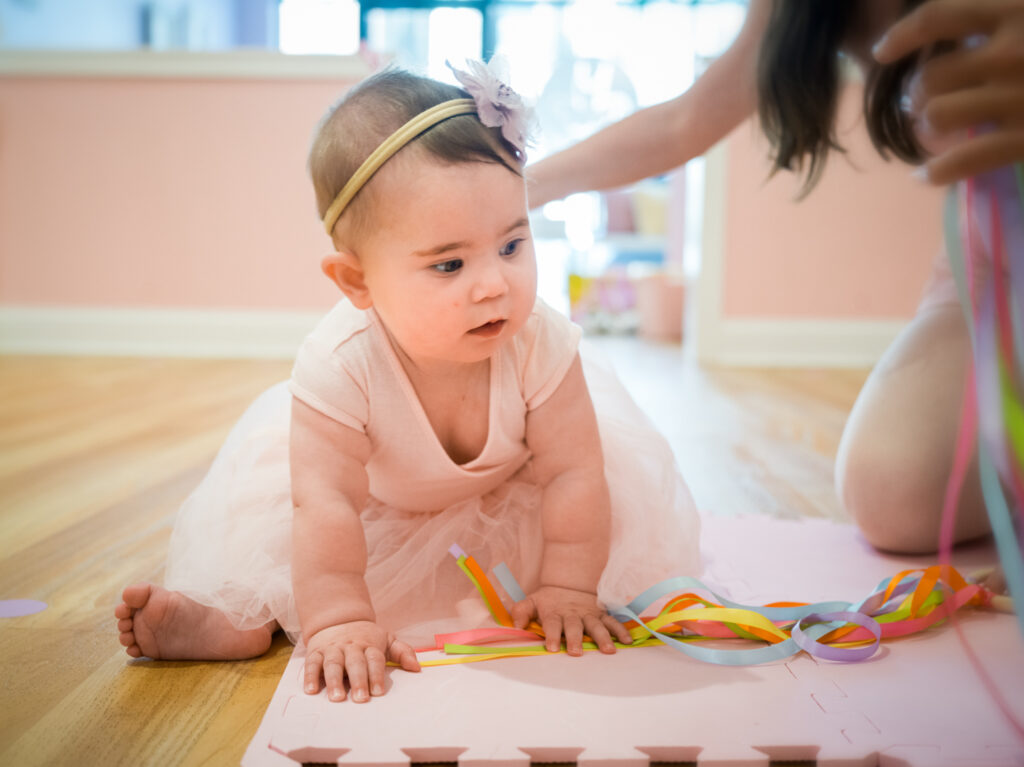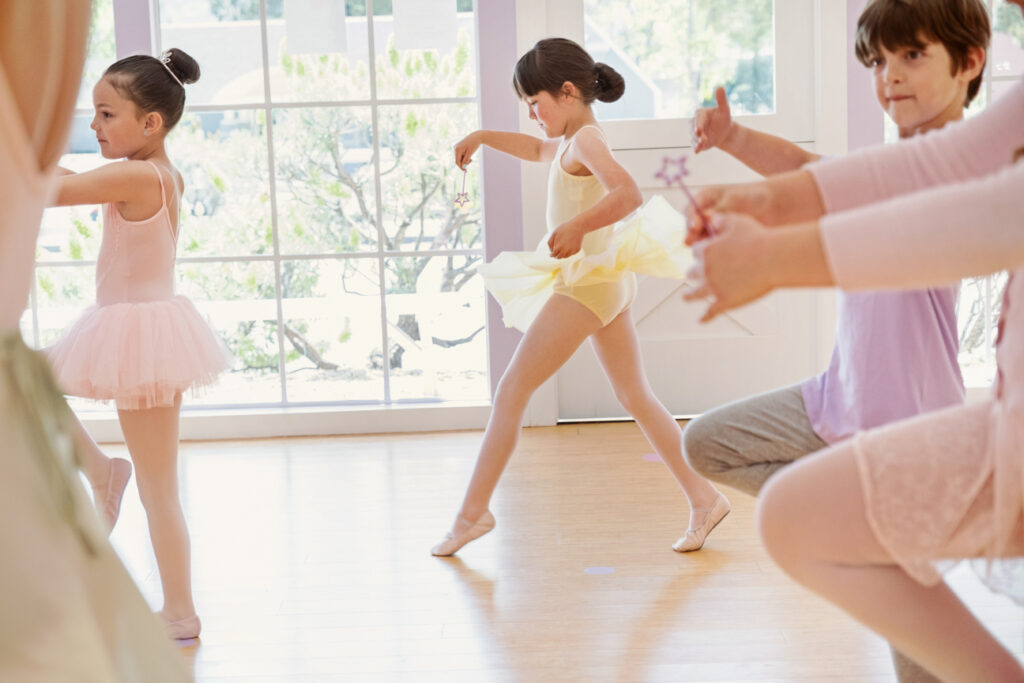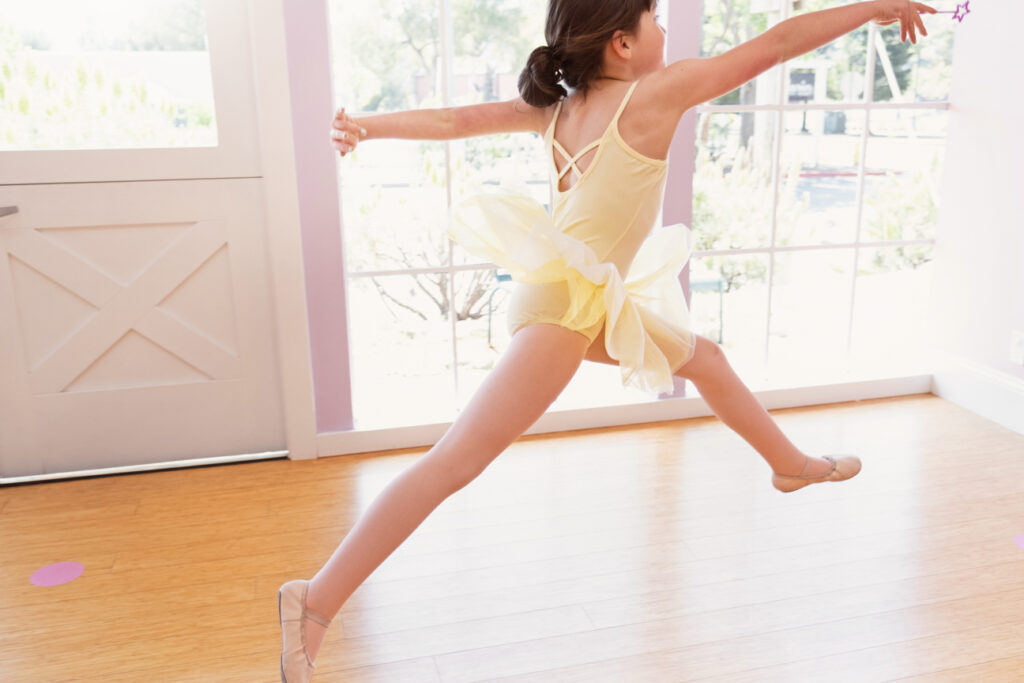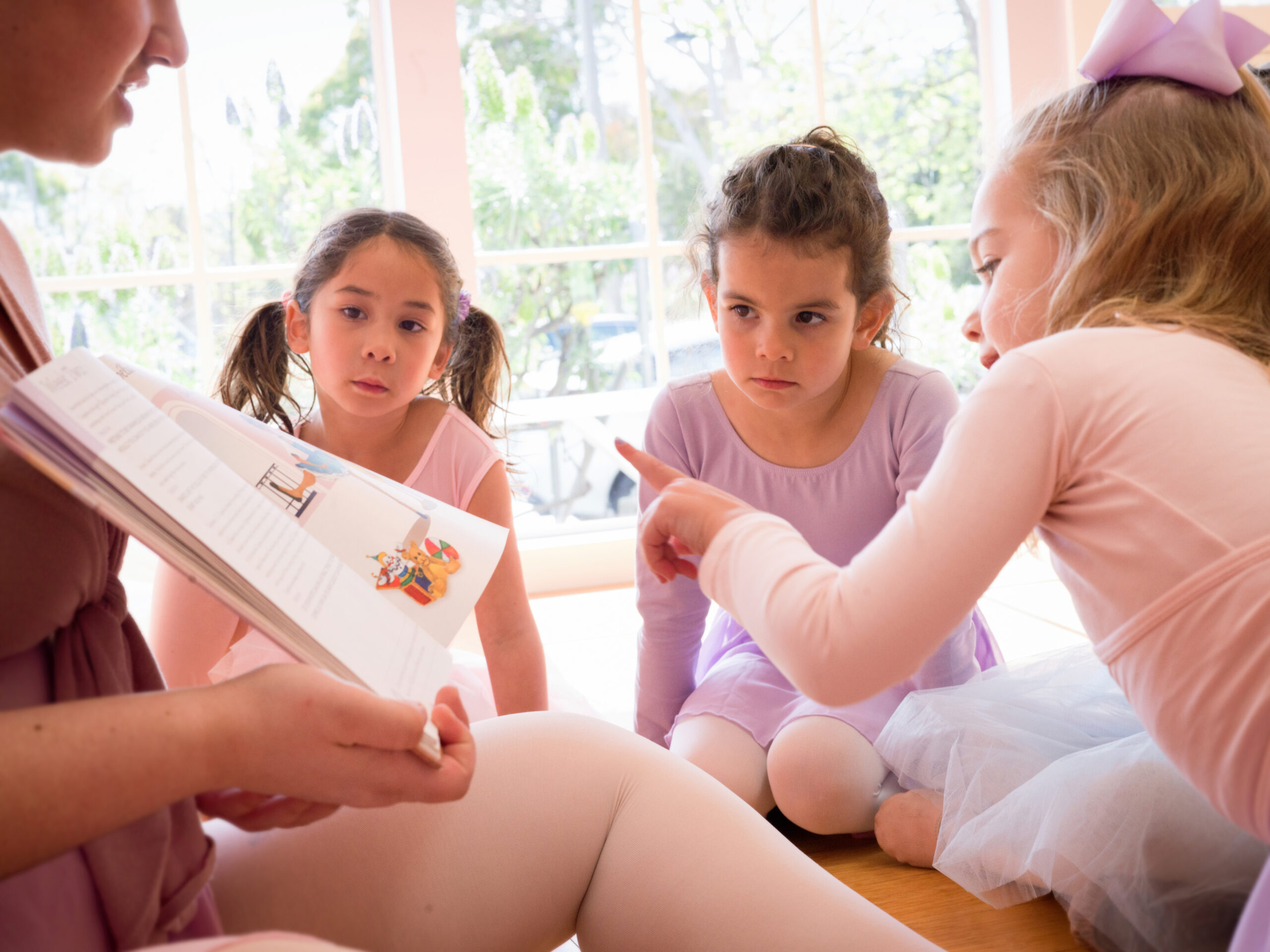Why Ballet Benefits Motor Skill Development in Babies & Big Kids
There is much more beyond the play, enchantment, and storytelling of each ballet class at Tutu School Wilmington. When it comes to the “magic” that happens in our studio, a good portion of it is magic happening inside children’s muscles and brains!
When choosing activities for their children, parents certainly want to know: Is this truly helping their physical development?
Well, our answer is a confident yes!
While we do focus on play-based learning, music, and imagination, the work we do is fundamentally building the physical foundation for your child’s entire life—skills like balance, coordination, strength, and that incredible, internal GPS we call muscle memory.
This isn’t just a fun hobby; it’s a path to children mastering their bodies. Let’s look at the profound physical benefits of early dance, from their first bounce and beyond.
Big Feats for Little Hands: Building the 0-3 Foundation
When you enroll your baby or toddler in our Baby Ballet (6-18 months) or Tutu Toddlers (18 months – 3 years) programs, you’re making a proactive decision to support their brain’s most intense period of physical development. The early benefits we focus on are all about establishing the essential connection between the body and the brain.

The Power of Props: Fine Motor and Sensory Skills
For our youngest dancers, we’re tapping into fine motor development, often using small tools and tactile experiences:
- Hand-Eye Coordination & Grasp: We use soft balls, shimmering ribbons, and scarves to encourage grasping and releasing, which are critical fine motor skills. The cognitive work involved in deciding what to put down and pick up when holding two balls and being offered a third is a massive burst of brain-body development. This practice supports the development of dexterity and the use of smaller muscles in the hands and feet.
- Body Awareness and Auditory Connection: Movement alongside caregivers in different qualities—bouncy, slow, fast, low, or high—helps infants coordinate their movements with sound, establishing a foundation for rhythm and timing. Infants also begin to recognize and control body parts, such as their feet, hands, and legs, which is critical for future self-recognition and complex movement.
Stepping Up: The Toddler Leap
As children transition into our Tutu Toddlers program, the focus shifts to more complex gross motor skills (using large muscle groups) and fundamental body control:
- Developing Balance: We begin to work on finding balance, even if just for a moment, on one leg or the other. Ballet movements inherently challenge their sense of balance, teaching them control in space.
- Jumping and Landing: A crucial milestone we develop is the ability to jump off of two feet and land back on two feet—a move that builds core and leg strength while training coordination and control.
- Kinesthetic Memory: Exploring those movement qualities (fast, slow, smooth, bouncy) helps them build their kinesthetic memory—how the body feels when performing different actions—which is the precursor to learning structured technique and even choreography later.

The Mind-Body Connection
The value of this early movement is backed by the philosophy that physical experience drives cognitive understanding. As Maria Montessori observed, “What the hand does, the mind remembers,” emphasizing the hand as the “instrument of man’s intelligence”. In ballet, this principle extends to the whole body, creating a foundation for a child’s physical and cognitive development.
The Path to Poise: From 3-8 Years, Where Magic Meets Muscle Memory
When little dancers graduate into the Exploring Ballet (3-5 years) and then again to Primary Ballet Prep (5-8 years) divisions, the instruction deliberately shifts from pure exploration to focused fun. This is where we tap into the amazing power of the brain’s ability to learn through repetition building muscle memory and neurological development.
Muscle Memory: Effort Becomes Your Child’s Instinct
We’ve all heard the phrase: It’s just like riding a bike. That’s the reward of muscle memory!
- Muscle Memory Defined: Muscle memory is a powerful neurological process where the brain learns and remembers physical movements through the pure joy of repetition. Each time your child performs a step, their brains create stronger connections between nerve cells, helping movements become automatic.
- The Power of Playful Practice: Consistent practice is what turns that effort to mastery and artistry. It builds a child’s confidence in their body and frees them to focus on the magic of the moment—the emotion and the smooth transitions—rather than consciously thinking about the steps.

Neuroplasticity: The Brain’s Ability to Bloom
Your child’s brain is a world of wonder! Ballet classes leverage this phase of rapid brain growth to maximize learning:
- The Brain’s Ability to Change: Young brains have an incredible degree of neuroplasticity—the amazing ability to change and form new, healthy pathways. Structured activities, like dance, are a primary catalyst for this growth. Research suggests that specialized dance instruction may even outperform repetitive physical exercise in promoting brain plasticity.
- Building Fundamentals and Refining Technique: We use the muscle memory mechanism to instill essential ballet skills. This includes The Mind-Muscle Connection, which is enhanced when dancers playfully focus on the muscles they are using (such as maintaining straightened knees and pointed toes), through imaginative narratives. Movements strengthen both gross and fine motor skills while developing nuanced technique.

The Joyful Benefits That Last a Lifetime
At Tutu School Wilmington, we believe that “the soft tulle layers of a tutu are beautiful, but so are the brave determined muscles that dance underneath it”—We’re here to develop those muscles and motor skills to support our dancers bodies and minds through their childhood and beyond.
Ready to Build Your Child’s Physical Foundation?
We’d love to welcome your child to Tutu School Wilmington. We know that movement is their first language, and we can’t wait to watch them speak it with confidence and grace!
If you are a parent deciding, “Is it worth it to sign up for this class?” know that the skills we teach—the focus, the balance, the coordination—are not just for the stage. They are a foundation for a lifetime of physical confidence and resilience. Schedule a free Trial Class to experience it for yourself!

other posts you might like
Newsletter


